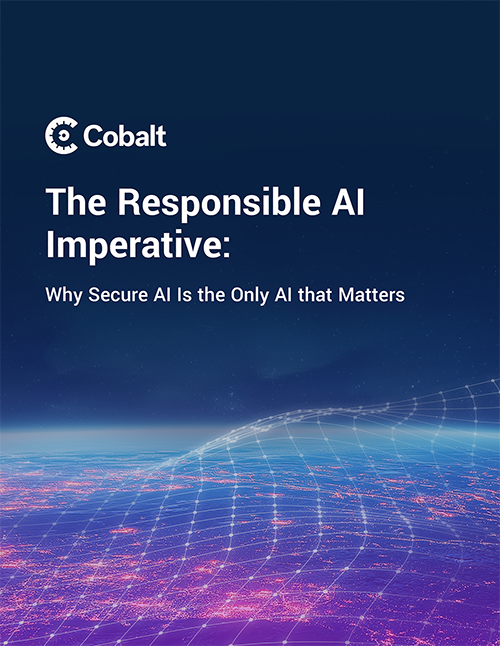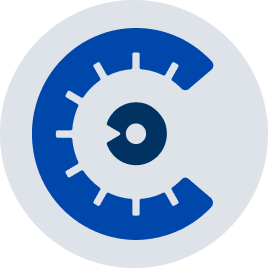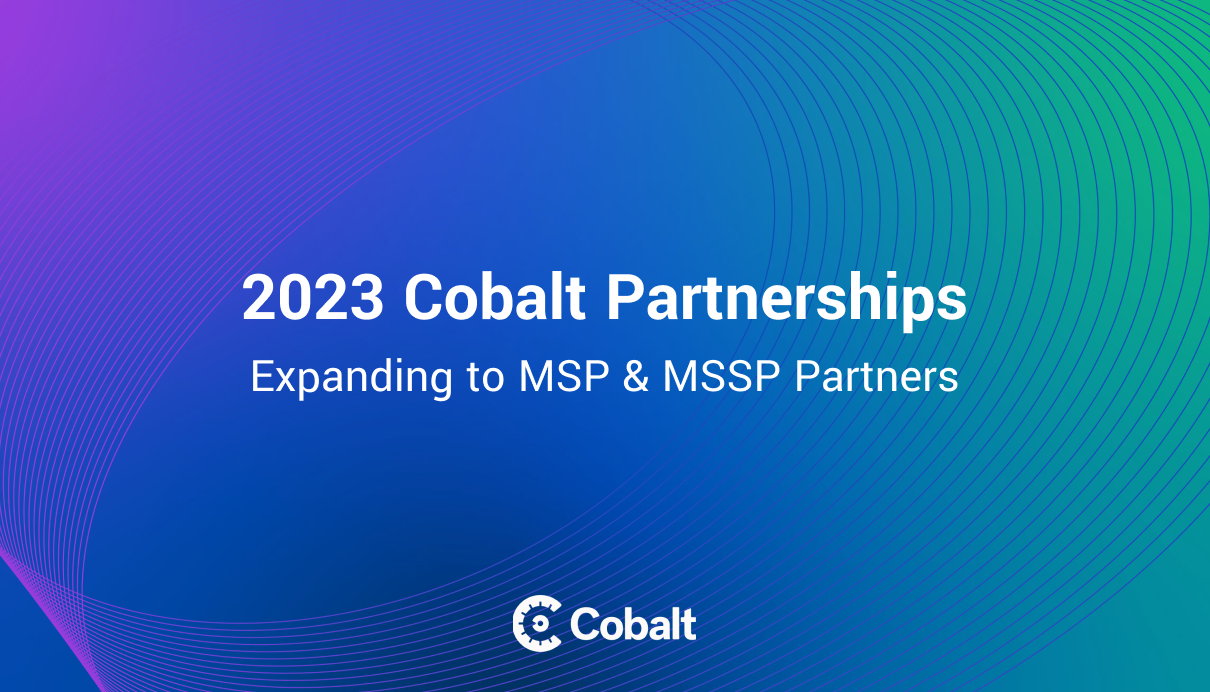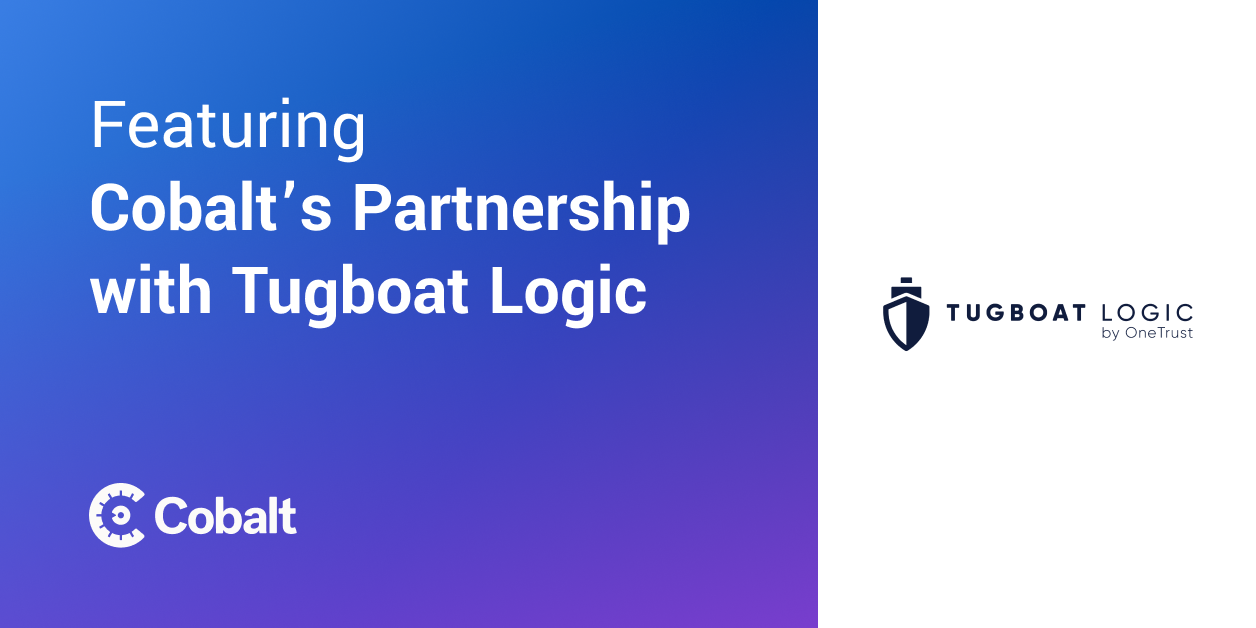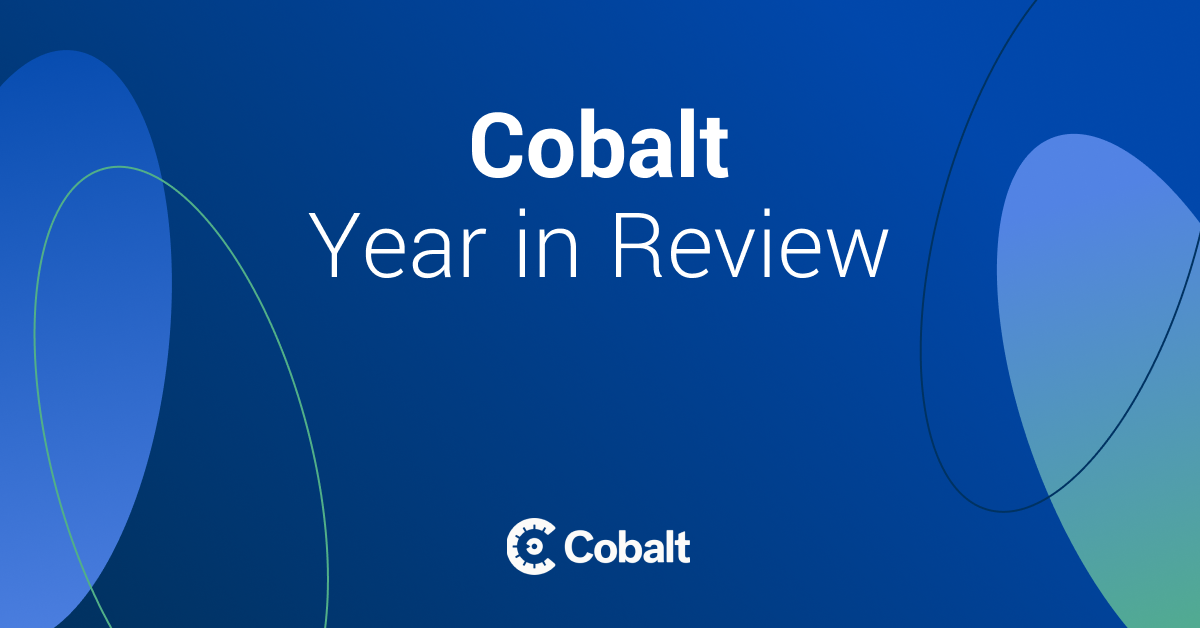Today, Cobalt, is proud to announce the winners of its annual Partner of the Year awards, including OneTrust (acquired Tugboat Logic), Secureframe, Eden Data, NaviLogic, and Brandvakt. Each is being honored for their exceptional partner relationships, strategic focus on security, and dedication to fulfilling customers’ pentesting needs amid a year of uncertainty and increased cyber threats.
After launching the partner program in 2021 and scaling it to where it sits now at over 120 partners, Cobalt is now expanding and adding MSPs and MSSPs, and other firms providing managed security services. Most notably, NTT Data joined the program in November to continue to help companies fight potential cyberthreats with proactive pentesting.
With that said, Cobalt wants to recognize the amazing partners and growth in 2022. Each winner has shown incredible commitment to meeting the industry’s evolving business needs, and we’re thrilled to support the continuous value being brought to the market. Winning categories and partners include:
The winner of Partner of the Year, Global, is OneTrust (acquired Tugboat Logic). The Partner of the Year, Global category acknowledges outstanding partnership working with Cobalt and going above and beyond to drive mutually beneficial marketing campaigns. As society redefines risk and opportunity, OneTrust empowers tomorrow’s leaders to succeed through trust and impact with the Trust Intelligence Platform. The market-defining Trust Intelligence Platform from OneTrust connects privacy, GRC, ethics, and ESG teams, data, and processes, so all companies can collaborate seamlessly and put trust at the center of their operations and culture by unlocking their value and potential to thrive by doing what’s good for people and the planet. Pentest as a Service (PtaaS) platform has helped OneTrust (acquired Tugboat Logic) customers solidify their security posture by automating their pentesting needs, leading to their platform becoming more secure than ever. OneTrust (acquired Tugboat Logic) has built-in deep integration utilizing Cobalt’s open API to better integrate PtaaS within OneTrust (acquired Tugboat Logic) suite.
The winner of Partner of the Year, EMEA, is Brandvakt, helps partners and their customers by offering consulting and advisory services that address all challenges in cybersecurity. They know that improving security posture and helping organizations be compliant with regulatory and security frameworks, is a business differentiator and a modern day necessity. This award, similar to the one above, acknowledges outstanding partnership working with Cobalt in the EMEA region. Included in their repertoire of security platforms is Cobalt, where modern and secure pentesting is available to more companies across the EMEA market.
The winner for Rising Star is Eden Data. The Rising Star award, as the name implies, acknowledges our top performing partner that started working with Cobalt this calendar year. Eden Data helps companies build security, compliance, and data privacy programs for startups and next-gen organizations based on their exact goals and tech stack so that they can focus on growth. They are your one stop solution for a virtual CISO.
The winner for Most Innovative Partner of the Year is Secureframe. This is a new category we’ve added that highlights an exceptional partner that has had the most innovative new product or technology launch. Secureframe is a modern all-in-one governance, risk, and compliance platform that helps companies achieve and maintain continuous security and privacy compliance with speed and ease—including SOC 2, ISO 27001, PCI DSS, HIPAA, GDPR, CCPA, and more.
Their founder and CEO Shrav Mehta had this to say about the partnership with Cobalt, “I continue to be impressed by Cobalt, who we've been partnering with for several years Cobalt's growing pentest as a service offering, combined with our leading automated compliance platform, empower our joint customers to achieve a strong security posture. I am excited about Cobalt's new Agile Pentesting offering and continuing to grow our partnership to enable the success of our joint customers."
Last but not least, the winner for Reseller Partner of the Year is NaviLogic. This is also a new category that we’ve added as we’ve expanded our program to include MSPs and MSSPs. As the name implies, this is awarded to the top performing reseller of the year. NaviLogic provides advisory services, technical integrations, and managed security services tailored to what each customer needs.
About the Partner Program:
The Cobalt Partner Program was initiated in March 2021 with the goal of creating and growing strategic relationships with security-focused companies to ensure the long-term success of our collective ecosystem of customers. There are currently two partner options, Referral and Reseller, with different tiers within each category to best suit the needs of our partner’s business. As part of the program’s benefits, partners are given referral fees, discounts, guest blog posts on Cobalt’s website, custom co-branded documentation, joint marketing opportunities, and more.
To learn more about Cobalt’s Pentest as a Service (PtaaS) platform, and how to become a partner yourself, please visit Cobalt's Partner page.

